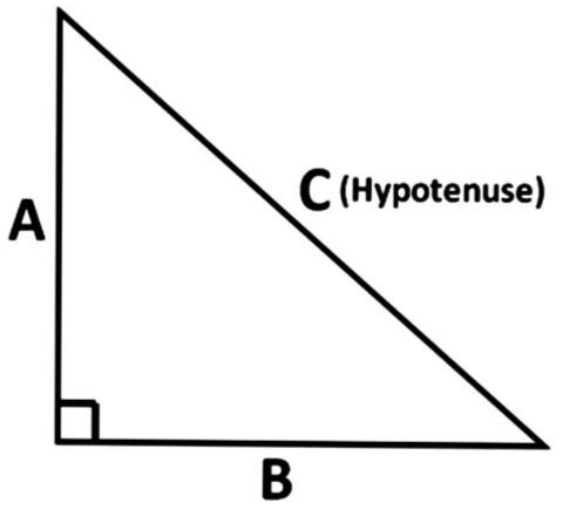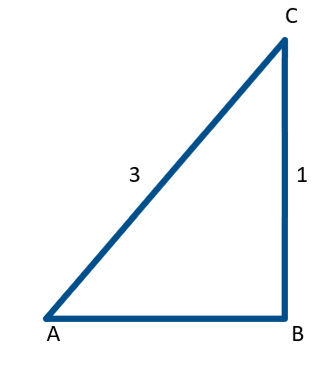Question
Question: If we have the trigonometric function as \[\sin A\ = \dfrac{1}{3}\] and \[0 < A < 90\] then what is ...
If we have the trigonometric function as sinA =31 and 0<A<90 then what is cosA ?
Solution
In this question, given that is sin A =31 then we need to find cosA. By using trigonometric identities and ratios, we can find the cosA . Also given a condition that 0<A<90 . First we can consider a right angle triangle. With the help of Pythagoras theorem, we can find the adjacent side and can easily solve the problem.
Pythagoras theorem :
Pythagoras theorem deals with the relationship between the sides of the right angle triangle. It states that in a right angled triangle, the square of the hypotenuse is equal to the sum of the squares of the other two sides.
In a right angle triangle ABC,

Where C is the hypotenuse, B is the base and A is the perpendicular.
According to Pythagoras theorem,
(Hypotenuse)2=(perpendicular)2+(base)2
⇒C2=A2+B2
Formula used :
1.sinθ=HypotenuseOpposite side
2.cosθ=HypotenuseAdjacent side
Complete step-by-step solution:
Given,
sin A =31
We know that
sinθ=Hypotenuseopposite side
Thus we get,
Opposite side=1
Hypotenuse=3
Let us consider a right angle triangle ABC,

Here we need to find the adjacent side AB,
By Pythagoras theorem,
BC2=AB2+AC2
By substituting the known values
We get,
32=AB2+12
By simplifying,
We get,
AB2=9–1
By subtracting,
We get,
AB2=8
On taking square root on both sides,
We get,
AB=8
Thus we get, AB=22
Therefore the adjacent side is 22
Now we can find cosA
We know that,
cosθ=HypotenuseAdjacent side
By substituting the values,
We get,
cosA=232
Thus we get the value of cosA=232
Final answer :
The value of cosA=232
Note: The concept used to solve the given problem is trigonometric identities and ratios. Trigonometric identities are nothing but they involve trigonometric functions including variables and constants. The common technique used in this problem is the Pythagoras theorem with the use of trigonometric functions.
